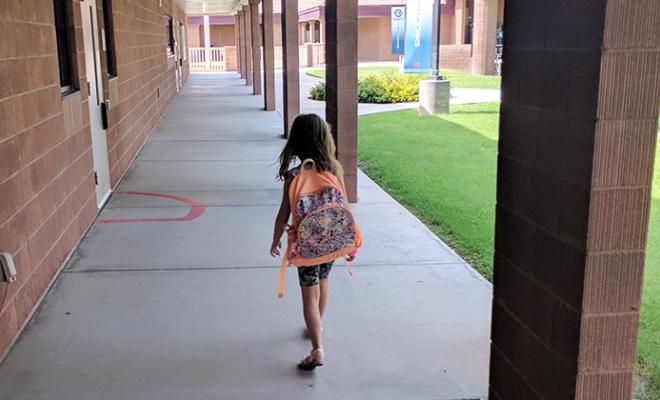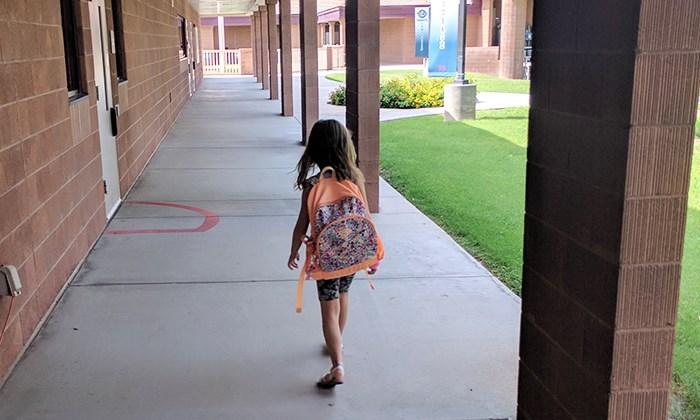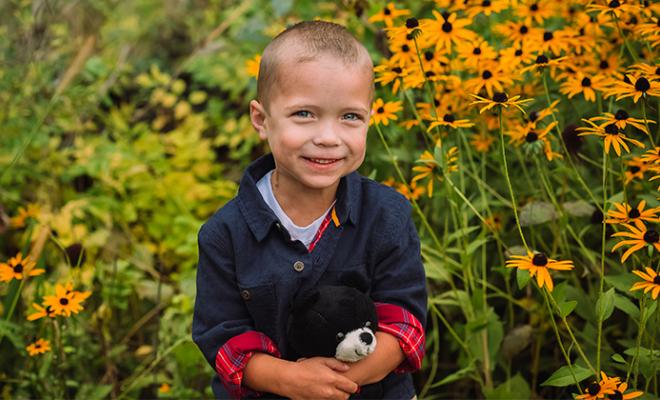Many parents cry when they send their kids off to kindergarten for the first time. But, parents of kids with cystic fibrosis have a bit more to worry about. When my daughter with CF started kindergarten this year, we were both very excited. However, I knew that we had to take a few more steps to prepare for the school year than the average parent.
The week before school started, I emailed my daughter's teacher with some information about CF and asked her if she had any questions about it. My daughter and I then went to visit with the school nurse so they could become acquainted with each other. We dropped off her medications that the nurse would be keeping in her office, along with the required forms filled out by her doctors. I made sure that the necessary people had a copy of her 504 plan that we developed for her year at pre-K. We also filled out a chronic illness form to protect her from being penalized for potentially missing too much school. I recommend checking with your child's school ahead of time on what forms are required or recommended, as each school district may have different policies.
Because caring for a child with CF means that we spend more time in the morning and before bedtime getting ready, we made sure that we accounted for this in setting the time we wake up and go to bed. My daughter knows that skipping her treatments is not an option, so if we get a late start, then we will be late for school. Luckily, she loves school and this is a good motivator for her. To save time in the morning, we have her morning pills ready for the week in a pill box. My husband and I split up the responsibilities of getting her ready for her treatment so she can feel that we are all a part in helping to keep her healthy.
Find the routine that works best for your family and stick with it for consistency.
One of the most visible and consistent parts of managing CF at school is taking enzymes before eating. Most schools do not allow students to carry medication on them for self-administration, so students may be required to go to the nurse's office to take them or have them administered by the teacher. This may also vary from year to year. It is important to develop a good working relationship between the school nurse, your child's teacher, and anyone else that might be involved in your child's CF care at school. Find out who will be reminding your child to take their medication, and keep in mind that it can be easy for him or her to get distracted during the day or feel embarrassed to ask when it comes time to take medication.
In addition to the more practical aspects of preparing for school with CF, I also wanted to make sure that my daughter was prepared in the event that she had to answer questions about her condition. We had talked about her CF before, but at this age, I was able to explain it to her in a bit more detail. I showed her an animated video, and we had a discussion afterwards. I told her that it was up to her how much she wanted to share about her CF with her friends and classmates. I reminded her that CF is nothing to be embarrassed about it, but it also does not need to be what defines her. After all, many people need to do different things to keep themselves healthy. Talk to your child about any concerns that they have about managing their CF while at school ahead of time so that they feel confident in their own care.
When the day finally came to send my daughter to kindergarten, I couldn't believe it was actually here. I remember thinking when she was first diagnosed as a baby that I would keep her in a bubble all her life to keep her away from germs. Over time, however, I realized that we were both stronger than that. I am so proud of the person she has become, and I am lucky to be her mother.
Neither of us cried that morning when I dropped her off at school. Instead, we exchanged smiles and reveled in how far we had come.






